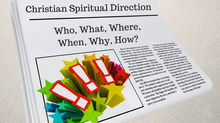Job Losses: A Kick in the Ol’ Self-Esteem

A common belief is that grief occurs only in response to death or divorce. This belief has been perpetuated in part by years of research that only studied grief in the context of bereavement. This does not mean that people do not grieve other losses, only that until recently researchers did not consider other types of losses in their studies.
One type of loss that is beginning to get researchers’ attention is grief associated with job losses, particularly as it relates to feelings of self worth and wellbeing. Anyone who has lost a job can tell you that they experience a mixture of conflicting feelings associated with this change—the very definition of grief—and that their self-esteem takes a hit.
According to Papa and Maitoza’s (2013) review of the literature, our levels of self-esteem are sensitive to changes in our lives, especially those that relate to how we think about ourselves. In other words, if we see ourselves as successful in our jobs, and then we no longer have a job, we likely do not feel very successful and our self-esteem suffers, especially if we have been asked to leave or are downsized. In other studies and confirmed by their results, a positive self-esteem and a view of the world as just and predictable have been linked to resilience and positive resolution of grief.
The results of their study also affirmed that people who lose their jobs experience grief responses that are different than those of anxiety and depression. This is an important point, because people who are grieving may appear depressed or anxious, when in fact they are grieving. For example, people who are grieving may feel numb, have difficulty concentrating, experience a roller coaster of emotions, and eat and sleep too much or too little, which can be mistaken for anxiety and depression. These feelings are normal and natural reactions to loss and are not an indication of mental illness. In addition, their results showed that the severity of grief was related to involuntary job loss and a person’s role as the primary wage earner.
What does this mean for job seekers? Do not be too hard on yourself for feeling sad, mad, glad, scared or anything in between. Again, mixed feelings and having emotional swings are normal and natural reactions to loss. The challenge, of course, is that looking for a new job is demanding work, punctuated with rejection and disappointment. Further, job seekers are encouraged to show their strengths and put on a professional demeanor that demonstrates enthusiasm and positive contributions to prospective employers. In the business world, no one really cares if you are having a bad day. If job seekers are grieving the loss of their previous job, their self-esteem is low or both, these tasks become much more difficult.
To better position yourself for your job search, consider enrolling in The Grief Recovery Method® Grief Support Group or One-on-One, which provides a safe, confidential opportunity to gain a better understanding of grief and to learn specific action steps you can take to say goodbye to the pain and heartache caused by the loss of your job. It is an effective way to complete unfinished business, such as coming to terms with the things you wish you would have said or done differently, better or more, as well as unrealized hopes, dreams and expectations. By doing so, you will have more emotional energy and resilience for your job search. The Grief Recovery Method®: Grief Support Group is not therapy, but an eight-week educational program. A seven-week one-on-one program is also available.
Please call me at (404) 771-9335. I can help.
Papa, A. and Maitoza, R. (2013). The role of loss in the experience of grief: the case for job loss. Journal of Loss and Trauma. 18: 152–159. doi: 10.1080/15325024.2012.684580
© Ekteleo Ministry, 2016. All Rights Reserved.






























